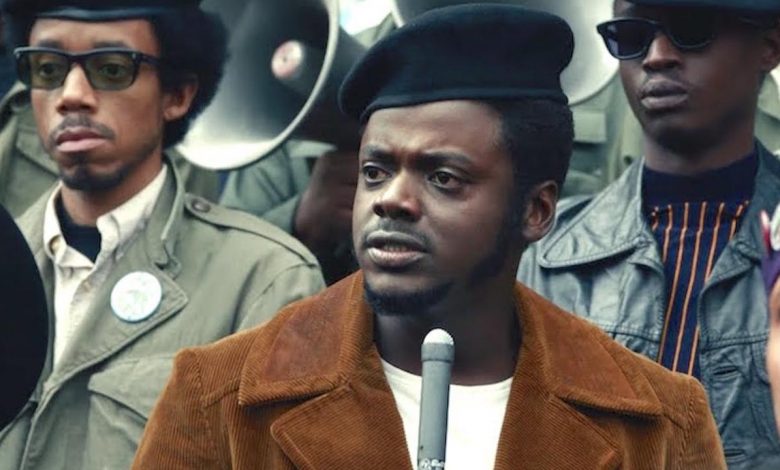Judas and the Black Messiah is a potent story of betrayal

dailytelegraph– Whether you’re watching footage of the real-life Fred Hampton or Daniel Kaluuya as Fred Hampton, it’s almost impossible to believe he was just 21.
Exuding power and conviction, the charismatic civil rights leader was heralded as a unifying force among disparate groups. As the leader of the Illinois chapter of the Black Panther Party, he challenged people to think of themselves as revolutionaries fighting against structures that oppressed them.
But that’s what made him dangerous to those in charge, especially to notoriously unscrupulous FBI director J. Edgar Hoover who wouldn’t brook any threat to authority.
Hampton was gunned down in his bed by law enforcement officers who stormed his apartment at 4.45am. He was 21 years old.
The impressive, explosive and gut-wrenching Judas And The Black Messiah is the story of Fred Hampton. But at its core it is the story of how the FBI exploited weakness to corrupt communities. If Hampton is the messiah, then this film exposes fear as the Judas.
Textually though, the Judas is young petty criminal William O’Neal (LaKeith Stanfield) who is arrested while pulling a car theft scam involving him impersonating an FBI agent. When he’s asked by actual FBI agent Roy Mitchell (Jesse Plemons), he explains why he uses a fake badge instead of a gun.
“The badge is scarier than the gun.”
It’s a line that barely needs any context, even 50 years later because we know all too well of the fraught, uneven relationship between law enforcement and black Americans which continues to exist, and of centuries of history in which prejudice and hostility have trumped compassion and humanity.
Mitchell pressures O’Neal to become an informant in exchange for dropping the felony charges against him, even though the threat of serious prison time never disappears.
O’Neal joins the Black Panthers and becomes close to Hampton (Kaluuya), and then feeds that information back to Mitchell. Meanwhile, Hampton is more and more effective in mobilising the community and bringing together rival gangs in the service of something greater than territorial squabbles.
As potent as Kaluuya is when portraying Hampton in scenes where he’s surrounded by people who feel the power of his lyrical words, it’s the quiet moments with Fishback or with a grieving mother where you see the strength of that character. You see his calmness in a world that is anything but.
There’s a confidence, clarity and certainty of hope that is so rare in someone of that age – even though Kaluuya is about 10 years older than Hampton was.
Perhaps that’s why Kaluuya feels like the lead in a movie in which he is actually secondary – and is rightly sweeping those Supporting Actor gongs in the current awards season and is the frontrunner at the Oscars. Even though Kaluuya is getting all the notices, everyone in the cast is commanding.
The dynamic of the charismatic scene stealer and the one who hides in plain sight is intrinsic between Hampton and O’Neal, in that it needed to be for O’Neal to have gotten away with being a government informant.
But Judas and the Black Messiah, persuasively directed by Shaka King, is centred on the first character in its title and when Stanfield is in a scene without Kaluuya, he’s magnetic. All that nervy energy threatens to leap off the screen.
O’Neal is a not a binary villain and Hampton and the Black Panthers are also flawed – the film doesn’t flinch or cut away from the violence that flowed both ways.
As much as O’Neal is a kid that was manipulated by authorities to betray his community, he also delighted in the perks. It’s smart of King to ensure the layers were there and Stanfield is perfectly cast.
Then you have Plemons as the quietly seductive Mitchell pulling O’Neal’s strings, while making it clear there were moments when his conscience almost stopped him but didn’t.
Perhaps the real Judas is not those that betray us, but our betrayal of ourselves and our better nature, both as individuals and as a collective. In not striving for something better than what is, we damn ourselves to accept a world Hampton never would have.

